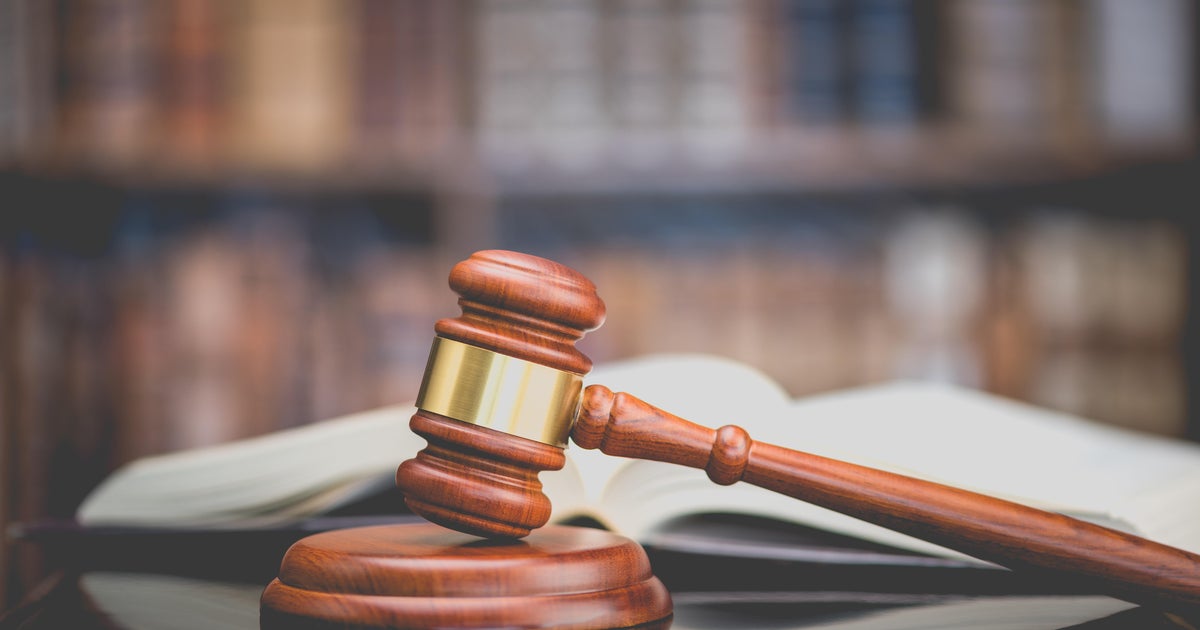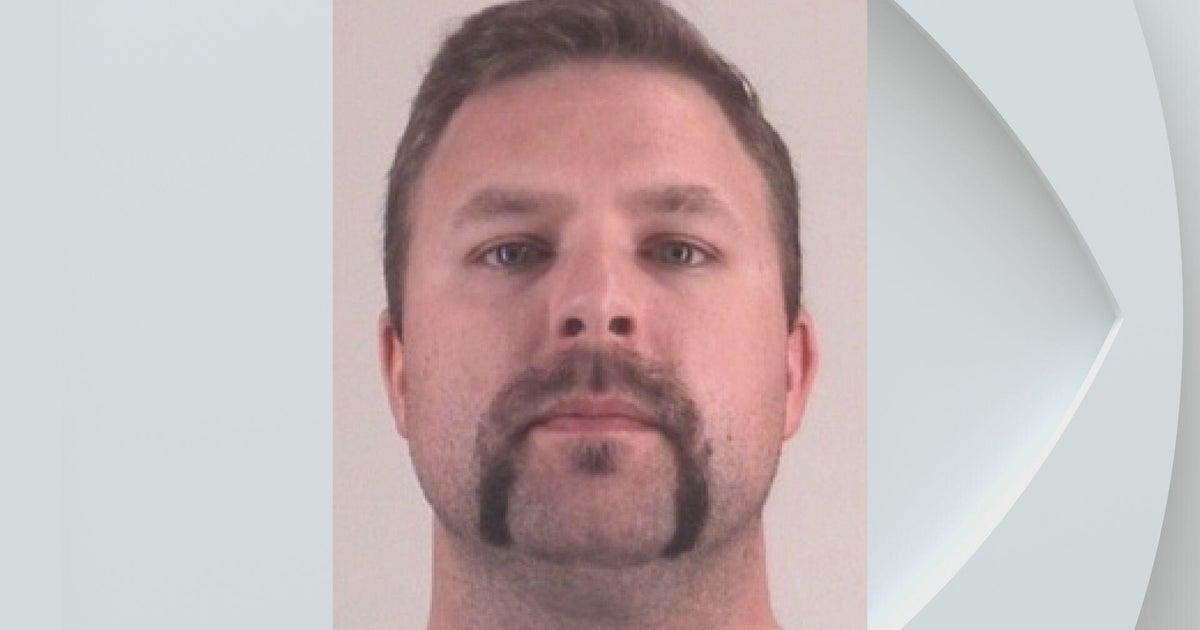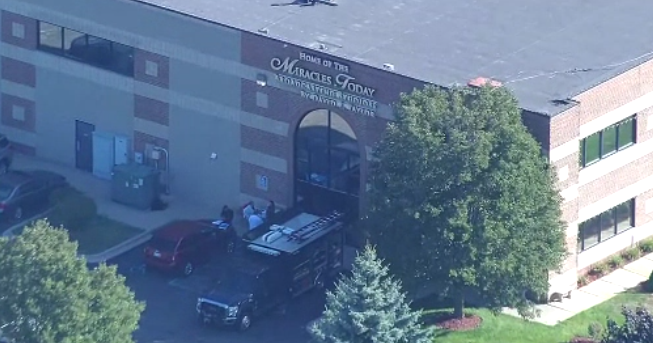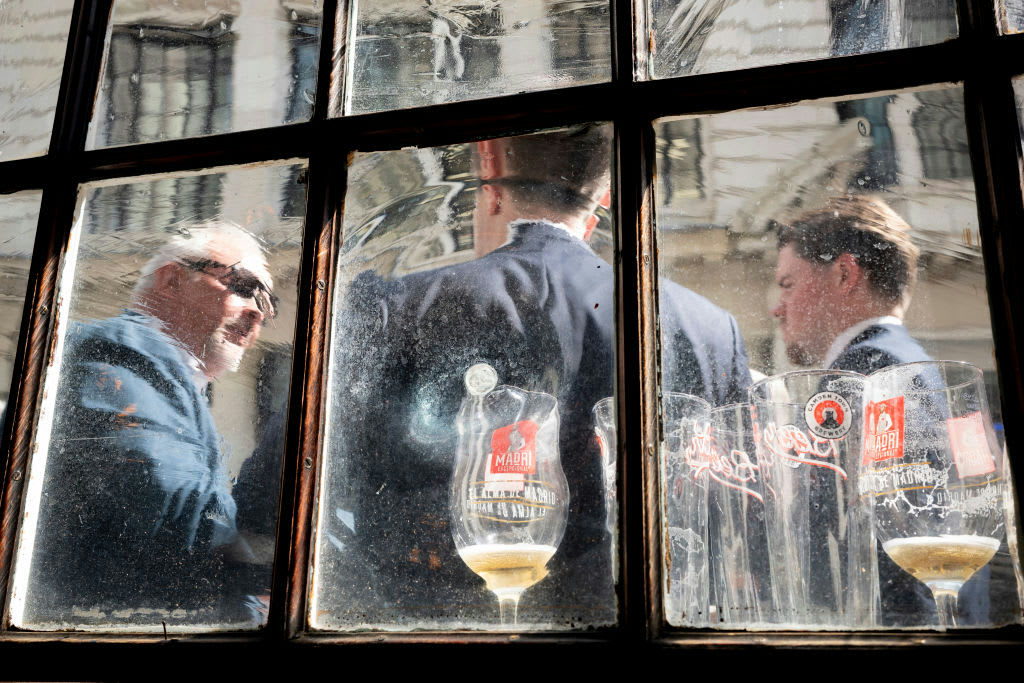BBC presenter sexual misconduct scandal embroils U.K. network in "war" with a media competitor
London — BBC chief Tim Davie on Tuesday insisted on allowing a high-profile presenter accused of paying a teenager for sexually explicit images to remain anonymous, despite mounting calls for his identity to be revealed. The accusations fueled a fifth straight day of fevered frontpage headlines in the British media, with the publicly funded BBC also leading its own news bulletins with the story.
There has been a frenzy of speculation about the presenter's identity on social media, with the Daily Mail even reporting that "one in six" Britons knew who it was, according to its own snap poll.
But Davie said "processes and protocols" were in place when allegations were made and they had a duty of care towards all involved.
"We always take these matters seriously and seek to manage them with care," he told reporters.
The corporation needed to handle them "with the upmost diligence," he added, refusing to comment on calls from some MPs to use parliamentary privilege to name the presenter in the House of Commons.
Parliamentary privilege allows legal immunity to lawmakers for statements made in the chamber.
Prime Minister Rishi Sunak, in Vilnius for a NATO leaders summit, described the allegations as "serious and concerning" but said it was a matter for the BBC.
What are the claims?
The claims first emerged in an article published Friday in The Sun tabloid in which the alleged victim's family said the presenter had paid a total of about $45,000 for the pictures.
The Sun said the exchanges between the presenter and the young person started three years ago, when the alleged victim was 17.
The saga took a twist on Monday evening, when the BBC said it had been sent a legal letter from the youngster's lawyer, stating that the claims in The Sun were "rubbish" and they had asked them not to publish.
"Nothing inappropriate or unlawful has taken place between our client and the BBC personality," the letter added.
But on Tuesday, The Sun doubled down on its story, quoting the mother of the young man, who is now 20, as saying the money from the presenter was used to fuel a crack cocaine addiction.
The BBC presenter was suspended on Sunday. Corporation bosses met police on Monday to discuss the matter but detectives have not opened a formal investigation.
Davie said the police had asked the BBC to pause its own investigations into the allegations "while the police scope future work."
British media outlets at "war"
The damaging headlines come after the broadcaster — whose brand is built on public trust — was rocked in recent years by scandals which saw some of their biggest names revealed as serial sex offenders.
"The BBC has a shameful record for ignoring complaints about its 'talent'. Its actions now must be entirely above board," The Sun said in an editorial.
Media industry publication Press Gazette called the claim and counter-claim "a war between two of the U.K.'s leading news publishers."
"This episode can now only result with either News U.K.-owned The Sun or the BBC having their credibility severely diminished," it added.
U.K. privacy laws, and why the presenter isn't named
The revelations have shone a light on Britain's complex and increasingly strict privacy laws, which have made the media increasingly wary about revealing a person's identity before they are formally under investigation or arrest.
In 2018, the BBC itself was forced to pay substantial damages for breach of privacy to the singer Cliff Richard after it broadcast live footage of a 2014 police raid on his home.
Further adding to the stand-off are the slew of attacks on the BBC by members of the ruling Conservative party and their supporters — including The Sun newspaper — since the divisive Brexit referendum in 2016.
The critics have accused the network of pro-EU bias, with others in the U.K.'s predominantly Conservative-supporting right-wing press accusing it of having a "woke" agenda, and criticizing its public funding model.
BBC presents timeline of events
Davie, the corporation's director general, briefed the media Tuesday on the BBC's latest annual report but inevitably faced a grilling about the scandal.
BBC managers had been asked to "assess how some complaints are red flagged up the organization," he said, as a timeline showed a delay in the network following up on the case.
A family member first complained about the media figure on May 18 — seven weeks before Davie was finally made aware of it.
Two attempts - by phone and email - were made by the network to contact the complainant but there was no response. The BBC's timeline shows no further efforts were made to contact the complainant after June 6.




